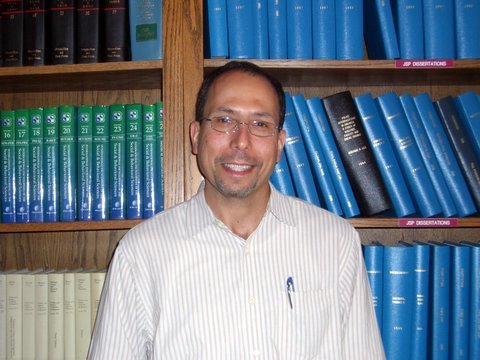Americans pay tribute to labor on the first weekend in September and to make sure no one connects that to the socialist/communist tradition of celebrating labor on, May Day, or May 1st. Never a nation to leave its ideological belt unprotected by suspenders, tbe United States also marks May 1st as "Law Day."This labor day, however, a more direct effort will be made to connect the two days. Undocmented immigrants and their supporters in several major cities are planning to march again as they did in numbers not seen in decades last May.Labor day also marks the historic beginning of the fall campaign in federal election years. This year the Republican majority in the House and Senate is under menace and we can expect a resumption of last spring's effort by the Republican majority in the House to enact a law marking the undocumented non-citizen as a felon. Observers of the May 1 marches by immigrants and their supporters may well wonder what precisely these demonstrations meant. The multitudes that took to the streets of American cities carried many signs, some of which point in different directions, but that should not stop us from receiving the message they could agree on. What the marchers all shared, and pronounced loudly and clearly, was the rejection of crime as the primary category in which to place the problems posed by all, most, or even many, of the immigrants who enter the United States without the permission of its government.
US laws require immigrants to obtain permission before entering this country, but that does not mean it is sensible for government to treat the millions of individuals currently doing so primarily as serious criminals. The current House bill would convert what is now at most a misdemeanor (the least serious crimes which are rarely punished with imprisonment) to an “aggravated felony.” While it is tempting to treat this aspect of the House bill as “extreme” (and what ever ultimately emerges from Capital Hill is certain to proclaim itself less so), the logic of taking complicated social problems as mainly about crime has become a common, indeed I would argue, distinctive American approach to governance in recent decades (one participated in by both parties with full enthusiasm). The appeal of governing through crime has become so strong that reform of many kinds in many important institutions in the United States today must work its way along paths of association with serious crime (or its latest variation, terrorism). It is hardly surprising that our law makers would return to this trusty solution to political consensus (and indeed crime and immigration policies have steadily converged in recent years). But what the marchers call us to consider is the high cost for all of us in treating as serious criminals, the vast majority of immigrants who come here not to steal or assault, but to labor for an honest (if low) wage regardless of the legal status of their entry. Defining such people as “aggravated felons” invites further policy development to look toward even more reliance on law enforcement and harsh punishments, at a time when unprecedented numbers of people are already incarcerated in the United States. It also invites those of use who enjoy legal status here to view ourselves primarily as crime victims rather than as workers, consumers, and taxpayers, who receive a bewildering array of costs and benefits from the large pool of laborers who enter without permission.
If we listen a bit more to multitudes of May, we can hear a second clear message. This is primarily a problem of labor. Placing illegal immigration in the category of labor does not necessarily point to a clear (let alone a simple) solution. Indeed it is likely to confront us with serious conflicts, not just between those here legally and those not, but within the much larger first group. Labor problems have always divided Americans in ways that crime problems rarely do. There are inevitably different interests and none of them can be morally excluded (the way we largely do the interests of “aggravated felons”). American politics once swirled around the problems of labor, but in recent decades that framework has fallen silent (often replaced by talk about crime concerns). Being called back to those conflicts will not be pleasant (especially for politicians) but this is where the new debate in Congress should start.


0 Comments:
Post a Comment
<< Home